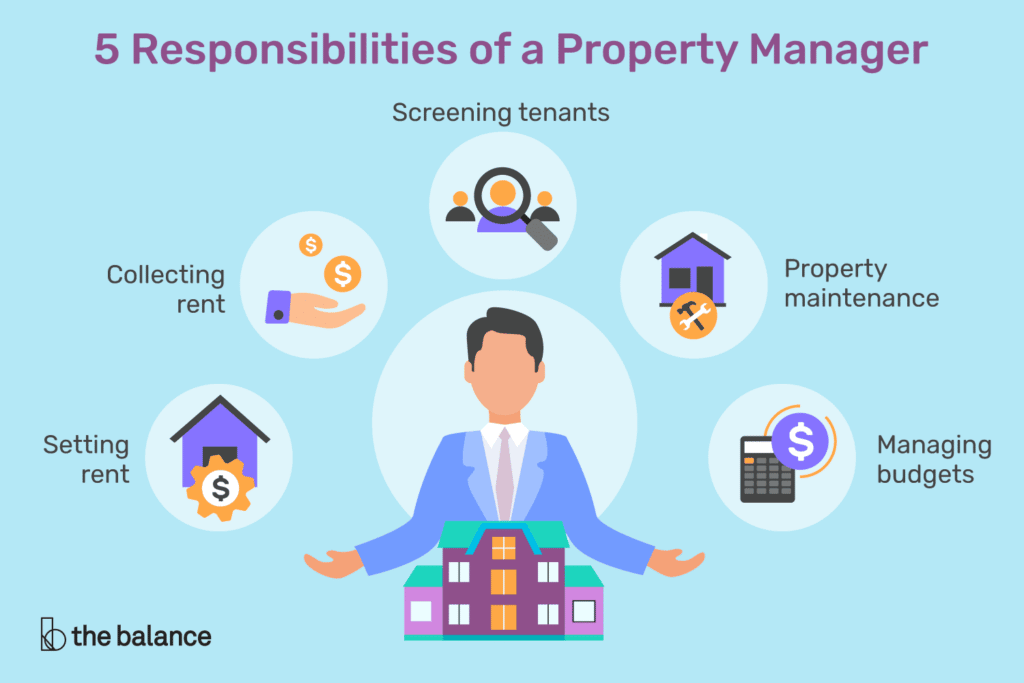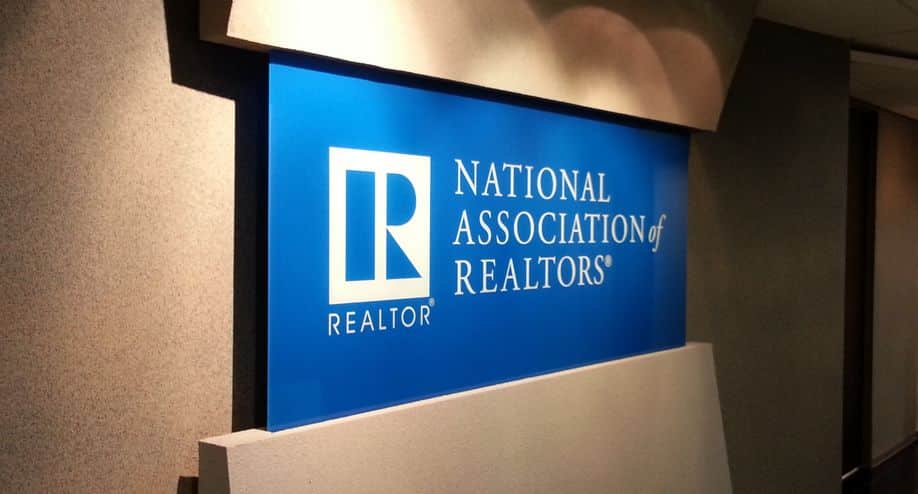How to Start a Property Management Agency in 9 Steps: Checklist

Do you want to start your own property management business? With over 307,000 property management companies in the US today, the industry can be very competitive.
From preparing your business plan, choosing your services, setting your fees, hiring staff and vendors, there is a lot you must do.
So if you are feeling lost and need some guidance on where to start, this post goes through the 9 steps you need to follow to start and run a successful property management business. Let’s dive in!
1. Research the Property Management Industry
If you’re planning to start your property management business, the first step is to carry out market research.
You must know your competitors, target customers, housing and demographic trends, startup and ongoing costs, marketing strategies, etc.
Competition
The first thing you should research is your competition.
What services do your competitors offer? Are they residential, commercial, industrial, or special-purpose property managers? What are their rates? What marketing strategies are they using to get customers?
Knowing this will give you important insight into what to expect and how to set up your property business such that it stands out.
Target Customers
Your marketing campaigns will be all the more effective if you know exactly you are your target customers.
For example, you can decide to either deal with single property owners, or real estate investment trusts that own multiple properties.
Startup & Recurring Costs
A property management business will cost money to start and run smoothly. First, you want to make sure you have estimated startup costs accurately: you don’t want to start a business only to be stuck the next day.
Starting costs for a property management business are typically rather low. If you need an office, you will need to put down a refundable lease deposit (3 to 6 months rent).
Otherwise, all it may cost you is a phone if you manage a single property, since you can also operate from home.
In addition, find out the ongoing expenses you could incur if you decide to rent an office, like your employees salaries, properties charges (if you offer the maintenance as part of your fee) as well as office expenses.
Housing, Economic, and Demographic Trends
In addition to competitors, customers and costs, you will need to do some market research, more especially here the housing and overall economic and demographic trends in your market. For example:
- How many properties are there in the area?
- Are they single (houses) or multiple-family properties (condos)?
- What is the average disposable income of people in the area?
- What are the main demographics (age, profession, etc.)?
Another aspect that you need to research is the average rent and purchase price per square foot in your location. This will give you a clear idea of the state of the housing market in your area.

2. Define your Property Management Services
After doing a market analysis, the next step would be to define what kind of services you will offer your clients.
You can research what the competition is offering, then capitalise on their weaknesses and offer services that set you apart.
For example, you can decide to offer services like:
- Undertake the daily maintenance of the buildings, both interior, and exterior
- Rent collection on behalf of property managers
- Supervising the daily upkeep of the surrounding landscaping and parking lots
- On-call maintenance for mechanical and weather emergencies
- Outsourcing of bids from vendors (HVAC, plumbing, painting, elevators, electrical, drywall, etc.)
- The brokerage services (like advertising, showing, and negotiating terms for vacant units)
- Overseeing new leases and lease renewals
- Conducting move-in/move-out inspections
- Undertaking renovations
- Billing for appropriate maintenance services
Setting out the services you’ll be offering will also give you a clear overview of the required resources for the business. For example:
- Will you need an office?
- How many employees and what roles will you need to hire?

3. Get Property Management Certifications
Before setting up your property management business, make sure you acquire the necessary permits and licences. These may vary from one state or location to another.
The documents are important if you want to operate smoothly and avoid confrontation with property State officers and hefty fines resulting from non-compliance. Some of the important certifications you need include the following:
Real Estate Broker licence
As a property manager, you are required to get a broker’s licence, having undertaken and passed the broker’s licence exam. The requirements for the licence are also different depending on the State. This licence may also require you to have prior attainment of a real estate agent licence, hours of work, and coursework.
Property Managers Licence
Again, to be issued the property manager’s licence, you must complete specific education and pass the licensing exam.
Leasing agent licence
Some states may require you to obtain a leasing agent licence to manage residential leases.
You can also get property management certifications to boost your efficiency in managing people and property owners. These may not be mandatory but are necessary. The following are some of the recognized associations from which you can get additional certifications:
- Institute of Real Estate Management (IREM)
- National Association of Realtors (NAR)
- National Apartment Association (NAA)

5. Set your Property Management Fees & Rates
Now your property has been licensed and what follows is setting your fees and rates. In doing this, you need to strike a good balance between generating enough income for your business and staying competitive in the market at the same time.
What are the different types of property management fees?
Yet, you need to consider the common fees in the property management industry to come up with competitive rates. These are:
- Setup fee: This is a one-time fee that you charge to new landlords as an expense for opening a new account with your property management business. It is usually $300
- Ongoing management fee: This covers your daily costs for managing the property, like collecting rent, communicating with the tenants, carrying out inspections, and responding to maintenance requests. The rate can be from 3% of the total monthly rental income up to 10%
- Leasing fee: Also a one-time charge, this is the charge for leasing out a vacant premise. It is usually anywhere from 50% to one month’s rent
- Eviction fee (optional): Fee that you may charge to act as the official representative for the property owner in case of an eviction
- Leasing renewal fee (optional): This is the fee for renewing the lease of an existing one. Typically it’s around $200

How do you set your rates?
The ongoing management fees form almost all your business income. Depending on your rates, you may make a profit or not.
First, set a goal of how much income you want to make from your services. Then, put into consideration the expenses you must incur in the course of your business. Finally, by comparing what other property managers in the locality are charging, you can then decide to set your ongoing management fee.
The following are the three methods property managers use in setting their pricing structure:
- Percentage-Based Fees: You may employ this method because some argue that property management fees should range between 8 and 12 percent of the rent, while others advocate for a different range. However, the rates will largely depend on your location and the services you are offering vis-à-vis your target profit
- Flat Fees: Another formula is to charge a flat fee for basic services you offer and offer other services as a package. The property owners will then choose and pay for only what they need
6. Draft Property Management Legal Contracts
After setting your pricing, it is now time to draft your contracts.
This is very important because a strong contract is a basis for professional interaction and for creating a good relationship with your landlords and tenants. It will also minimise the chances of disputes.
That being said, a good contract constitutes the following clauses in the contracts you will sign with property owners:
- Off-duty coverage
- Management fees
- Working hours and vacation time
- Workman’s comp, liability insurance, and indemnification from loss and damage
- Whether you or your property manager will live on-site
- Maintenance and repair budgets
- Emergency funds
- A detailed description of the services promised
- A timetable for invoicing and any penalties for non-payment

7. Pen a Property Management Business Plan
The next step when you start a property management business is coming up with a business plan. It is the blueprint of your business and should include:
- An executive summary: 2-page summary of your business plan as outlined below
- Business overview: start by introducing your property management business and giving a brief description of the type of services you want to offer. Also mention the properties you deal with, the average service rates, and your area of service
- Market overview: an overview of the expected market size, target customers, and demographic trends. Also, provide here a quick overview of your competitors.
- Sales & marketing strategy: How do you intend to attract customers? What marketing channels will you use? What’s your unique selling point (USP)?
- Management & people: Under this segment, introduce your proposed business management structure. Provide a brief overview of their experience, your hiring plans, and the different teams you intend to hire.
- Financial plan: How much profit and revenue do you expect in the next 5 years? When will you reach the break-even point? You should include here your 5-year financial projections. We recommend you summarize your financial plan with a chart with your key financials (revenue, gross profit, net profit).
- Funding ask: What loan/investment/grant are you seeking? How much do you need? How long will this last?
8. Hire Property Management Staff & Vendors
The next step on your list to start your own property management company is to hire employees and vendors.
Staff
Start by identifying the roles you need to hire people for. Then, draft and advertise those vacancies. State in detail the job descriptions and expectations and place the ads on social sites to get the right people.
After hiring, train the staff and embed your company values in them so that they can become your ambassadors.
You will also want to keep them satisfied so that they can boost your business and company culture.
Some of the talents you may need to hire are:
- Field managers
- Property managers (partners or employees)
- Office managers, receptionists and support staff (finance, HR)
- Sales representatives
- Service coordinators
- Marketing specialists
- Leasing agents
Vendors
In addition to hiring staff, you may also need to engage some vendors and professionals to support your property management business. These include:
- Real estate lawyers
- Accountants
- Contractors (such as chimney sweepers, electricians, groundskeepers, HVAC specialists, locksmiths, painters, plumbers, pool cleaners, and roofers)
- IT staff
- Customer/resident service reps
When engaging any vendor, always make sure you get copies of their licence, insurance certificate, and bond certificate. This will protect your company in case a dispute arises in the future.

9. Promote your Property Management Agency
Your property management company must have an online presence. Indeed, 95% of people use internet for searching properties in the US in 2021.
A business website allows you to interact with current and potential customers. Technology has made it simple to create and host a website for your company. You can have your property management company website up and running in a matter of hours.
A website allows you to display the available properties to buy or rent, their prices and location, and any other information that your customers may require.
Besides, your website, you should also start promoting your property management company. You can either choose search ads (Google Ads for example) and/or social media ads and content (Facebook, Instagram).



